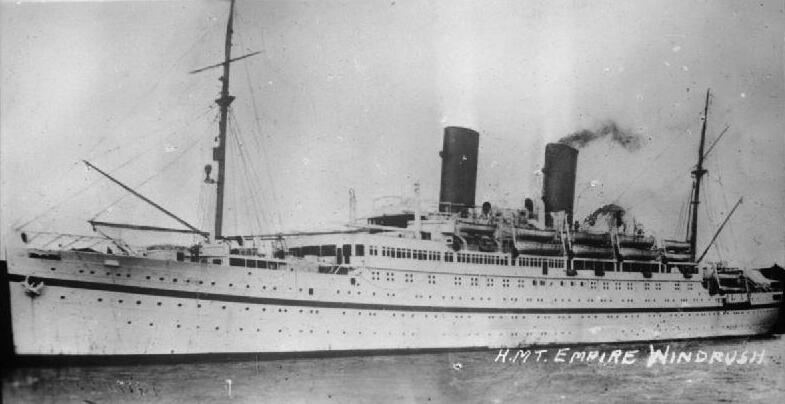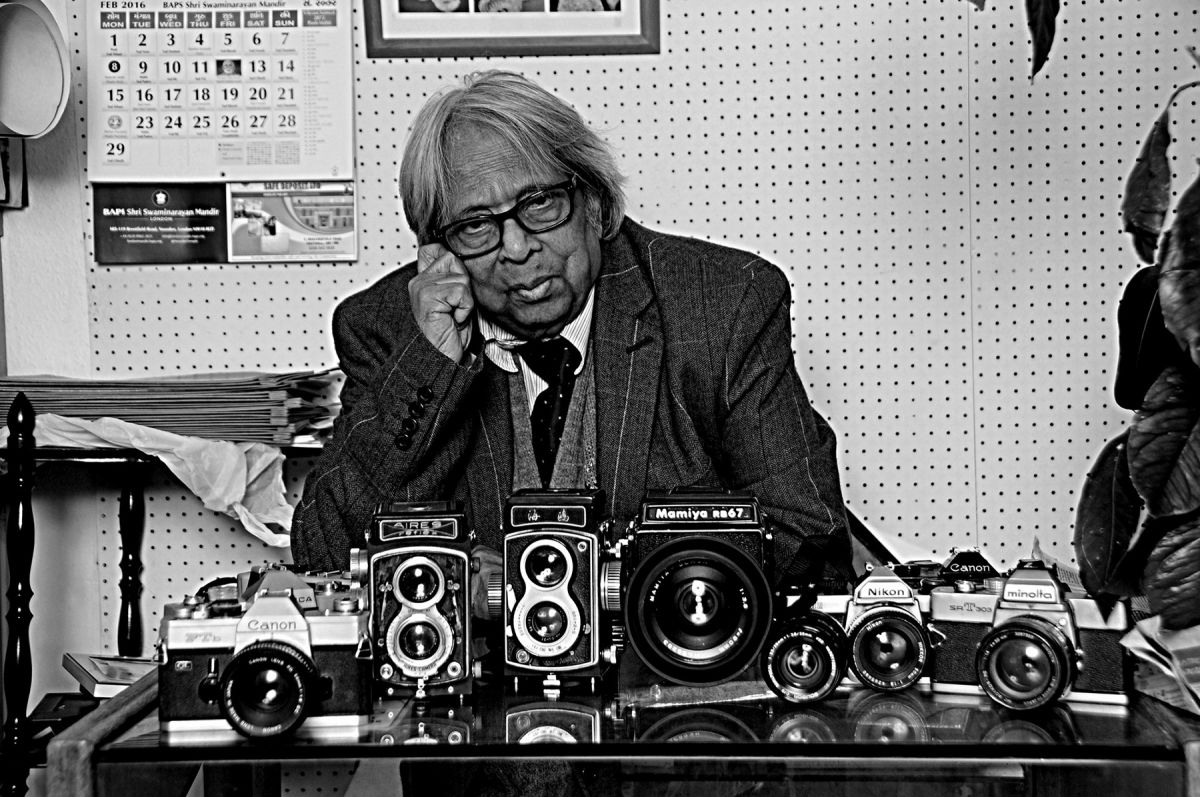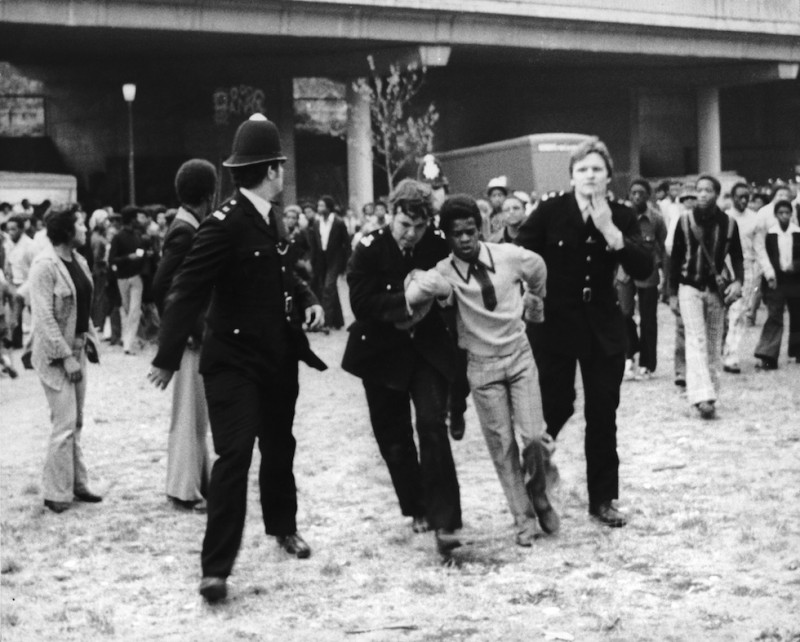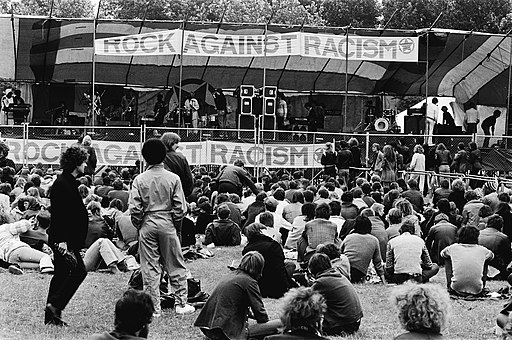The UK is considered one of the most multicultural countries in the world. Its attitude towards celebrating British culture is inclusive of its diverse population but this hasn’t always been the case. For centuries, people have been leaving their home countries to come and create a new life over here. They have embraced British culture, but also brought along their own.
And so our culture hasn’t just been shaped by our heritage, it’s also been heavily influenced by migrants whose cultural practices and beliefs have entwined with ours. Ultimately forming the British Society we know today…but how did we become so diverse?
Mass Migration
It is typically (and perhaps unfairly) thought that a lot of the migrants that came to the UK were unwanted. This is not entirely true. After the Second World War, Britain was desperately seeking workers of all kinds. The cities had been destroyed, institutions like the NHS were understaffed and Britain was looking to reshape its industries. The UK government desperately needed migrants to come in and fill in the gaps in society. Many saw this as an opportunity to not only come and work for a better wage but to celebrate their efforts in helping the UK during the war.
And so, from the 1940s to the 1960s, migrants from all over the world uprooted their lives to settle and work in the UK. While many Europeans came to work over here after being displaced by the war, the biggest percentage of workers came from the Commonwealth.
Colonialism vs. Commonwealth – is there a difference?
The Commonwealth was a fairly new establishment. The name, and the idea of it had only been around for forty-odd years. Before, countries under the ‘commonwealth’ were known as the British Empire – or as we commonly talk about it – countries that Britain colonised. What was different about the Commonwealth was that the countries that operated under that name technically were doing so voluntarily. If they wanted to, they could cut ties and allegiances with it. Although how true or supported that was, is not exactly clear.
This mass connection Britain had with other countries meant that migration was a lot easier than it is now. Unfortunately, like today, the migrants weren’t all received with welcoming arms.
Much of the British were encouraging of white settlers from Commonwealth countries such as Canada, Australia, and New Zealand. Supposedly to maintain old colonial ties. But because they too, had a shortage of workers – the government turned to the ‘newer’ commonwealth countries like the Caribbean. This was the beginning of the Windrush generation – one that completely changed and shaped how Britain’s society functioned.

What was the Windrush Generation?
In 1948, 500 folks came off the Empire Windrush to begin their new lives in the ‘Mother Land’ aka. England. Over the next twenty years, over 300,000 families and individuals moved away from their home country to start a new life. Most found work in infrastructure and manufacturing while others worked as nurses and on upcoming public transport. The change and influence they had over Britain surviving after the war was immense. For example, the NHS would not have been able to meet the health needs of its population if it were not for the Windrush generation. Without the skilled medical migrants that came in and helped patch things up again, the NHS could now, be a thing of the past.
What was great for the government was that none of these Commonwealth migrants required VISAs. All were meant to be given automatic rights like their fellow white citizens. It allowed more flexibility in not only getting them into the country and settled into their new lives seamlessly. But also in getting them to work as soon as possible.
Life Unexpected
While many came across the sea expecting a better life, their expectations were dashed on arrival. Most of these workers were coming from high skilled backgrounds, yet they found that the ‘mother land’ had little care for that. And were forced to work lesser skilled jobs. It’s not just their skills that were unappreciated… Many faced racist backlash from both UK Citizens and other white migrants. Remember, they were invited here, we needed them. But instead of embracing their differences and appreciating their contributions, they were treated like second-class citizens. By a country that they had not only aided during a war but one they were helping to rebuild. That’s the unfortunate truth of most commonwealth migrants.
Amazingly this did not change the migrant’s work efforts or the impact they had on society. By coming in en-masse to create new lives, they forced Britain to asses their current values, and societal views. And ultimately introduced Britain to multiculturalism.
Waves of Workers
Despite local backlash and rejection of the migrants, it was hard to ignore the success they bought to British society. Only a few years after, the UK saw a boom in both the workers and the economy. Many other workers from Commonwealth countries such as India and Pakistan saw the success of the Windrush generation. So they too came over to lend their skills. They settled mainly in the midlands and the north of England. Working in engineering and textile factories, reshaping Britain’s landscape once more.
Compared to London, the receival of migrants in the midlands and north, particularly in places like Birmingham, were generally warmer. Because of the number of migrants that were able to settle in these cities, communities were formed. These parts of Britain were becoming increasingly multicultural.
Maganbhai Patel, popularly known as ‘Masterji’ was a photographer who migrated from India to the west midlands. He took photos of the workers who lived there and the families that came to support them. Aside from the machine operator job he worked, he focused on his photography. The results quickly became a rich documentary of what the lives of migrants looked like at that time. His portraits and pictures give an insight as to how these migrants were creating so much more than just their ‘work.’
Despite many migrants being able to settle down and make lives for themselves, the outwards community and laws were continually going against them.
 Masterji
Masterji
Britain’s Racial Tensions Explode
It was clear that from the first arrival of the Empire Windrush, migrants, especially migrants of colour, were discriminated against not just in jobs but also in accommodation and shops. Many rentals had a ‘no blacks’ rule and migrant children were not provided with adequate education as they should have. Coloured bars were erected in the midlands and north. Asians were constantly being protested against buying their own houses and properties. This meant that a lot of migrant families had to live in lower-income environments and make do with what they had, essentially hindering their chances of improving their lifestyle.
As more migrants came in, locals started to get angry at how their jobs were supposedly being taken. Blatantly ignoring that many of these jobs were available because of the lack of interest or the class/social divide that came with them.
The rise of angry murmurs and protests became something much larger and unified when the Nation Front party was formed. The National Front was and is a far-right fascist group. Which came together in retaliation and opposition to communism, migration and settled non-white immigrants. Even in their early stages, they had over 2000 members and quickly became popular in the voting stalls earning them, unfortunately, a place within the U.K. government.
The rise of the party and racist attacks lead to the famous riots of Notting Hill and Nottingham in 1958. These riots would later act as the domino effect for the regulations that were enforced on UK migrants. A large group of white working-class men nicknamed the Teddy Boys were beginning to launch racist attacks against Black workers and families in the area. The assaults became full-formed riots when mobs of white people attacked West Indians’ residency with little to no backlash from the police or government.
 Notting hill Riots 1976
Notting hill Riots 1976
The Commonwealth Bonds Weakening
With political and local tensions high, the government decided to put its first restrictions on Commonwealth migrants. This came in through the Commonwealth Act in 1962. It restricted migrants to only being allowed in the country if there was a relation living there or they had previous connections with the country. To obtain a work permit you also had to have a considerably high-skilled background such as a doctor.
However karma struck, and the new restrictions backfired beautifully. A lot of Commonwealth migrants moved to the UK intending to help Britain out and work there for a while before returning home to their families. With this new act in place, many decided against going home fearing they would not be allowed re-entry, and instead bought their families to them.
So instead, this bill did not help smooth over any tensions. In fact, it was like adding fuel to fire. Migrants that were residing in the country were outraged by the lack of support and care for them after the abuse and neglect they received. And on the other hand, many people protested for stricter regulations both within the government and outside of it.
Perhaps the most well-known stance against the Commonwealth migrants was the Rivers of Blood speech. A racially charged and violent speech that became immensely popular within the British public.
This was a turning point for British Politics, it fueled the xenophobia and allowed the conservative party to get voted back in. Which led to the Immigration act in 1971, getting rid of all Commonwealth migrants’ advantages, and treating them exactly as if they were to come from another country.
Music Migration
But despite being treated so poorly, the migrants carried on contributing to our society. Albeit in ways that are underappreciated and rarely acknowledged. While their influence is commonly known by their contribution as workers. They also shaped the British arts, music, and literature scenes tremendously. Most of the media we consume today has either been influenced by our migrant cultures. If not, began its roots in the arts they bought over with them.
One place you can clearly see their mark is within the music scene. Caribbean music was already infused with touches of Latin American, African, and Asian. So in bringing it to the UK bought an explosion of different music genres as well. Soon our music consisted of jazz, blues, gospel, and Latin music all at once. Culminating into the genre of ska. Music it seems was (as always) highly influential in closing the gap in Britain’s cultural divide. Rock Against Racism played a big part in this, and was formed in retaliation to racist comments from huge stars such as Eric Clapton. Over time fresh genres began to emerge. These we know more commonly today such as drum and bass or grime.
In British literature, many migrants are left off the ‘canon’ list. Or are not associated with British ‘classics’ which is widely unfair. Especially, seeing how the majority of them were also contributing to a major section of our post-modernism literature.

Food For Thought
Our cuisine is also another area of our society where the influence of migrants is clear. Especially in take-out culture and eating out. Many families and chefs from the Commonwealth countries took advantage of the gap in Britain’s food culture. And set up family-owned restaurants serving their own country’s cuisine. It seems British society is more accepting of culinary diversity. Even to the point where curry has been named as ‘Britain’s favourite dish’. Yet those who order an Indian on a Friday night are often also those who oppose migrants rights.
The commonwealth migrants bought so much with them, and did so much for society. It’s a shame how little its reflected within British history.
Addressing Attitudes
Nowadays, it’s rare not to see discussions surrounding immigration and refugees. Our history with migrants has certainly created a present that is not always unreminiscent of the past. Yet, despite tighter and unfair regulations set by the government, one thing that is consistently changing and improving is society’s attitudes towards it.
One refreshing moment that demonstrates this perfectly. Is the immense support given to Mo Farah when he publicly revealed his truth. Mo was a victim of child trafficking. And had falsely been granted British citizenship through claiming his father lived in the UK. In the past this support and encouragement was unfortunately unheard of. Though Mo’s story is tragic and sadly a story told by many others, he has been living and working in the UK illegally…
Which makes us question that if he had been anyone else, would he have had the same reaction? Perhaps that is because he is a part of the GB team and is excellent at what he does. He represents and wins medals for our country. This is a cynical view, however we are still hopeful that those aren’t the reasons for the positivity and drastic change in attitudes. After all, the fact that he decided to go public with something so personal suggests that there is an understanding that the British pubic is becoming more accepting. Although, the government? Maybe not so much, lets not forget the wrongful scandal surrounding the Windrush immigrants.
Proud to be Brit…ish
Commonwealth migrants have no doubt had a huge impact on British society. Of course, there are still undertones of racism and discrimination. But in comparison to our history, multiculturalism and communities that used to not fit into the expectations of being British, are slowly but surely becoming more widely accepted. Society are generally keener to learn about the different people that reside here. And are happier to intertwine other cultures with the quintessentially British. The result? A rich and diverse multicultural nation, a home land with a vibrant population that are all for the most part proud to be British.

